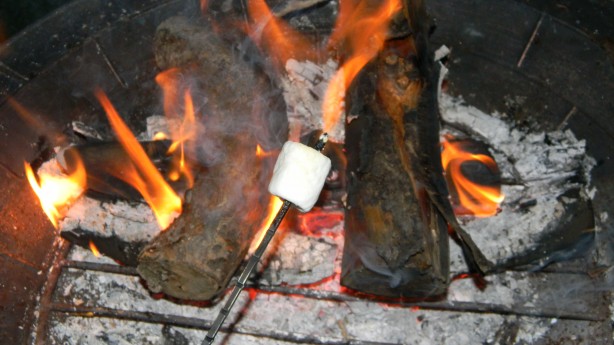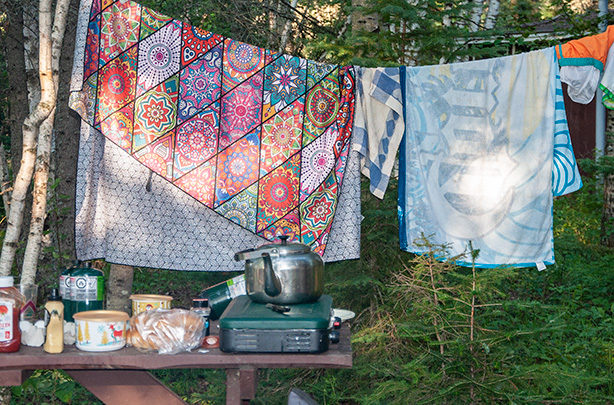When I was a child, I had problems with bedwetting. I was a very deep sleeper and I simply didn’t wake up when I needed to use the bathroom. It was frustrating for me and, of course, for my mother, but most of the time it didn’t really affect my day-to-day life.
Then one day my babysitter, who was a close friend of my mother and like a second mom to me, invited me to come along on a trip she was taking. I was incredibly excited and begged my mom to let me go, but she told me that she didn’t want to make my babysitter deal with my bedwetting problem and so I couldn’t go. The fact that I remember this event in detail 25 years later is proof of how disappointed and hurt I was.
Bedwetting is a fact of life for many kids and fortunately it is usually easily dealt with in the home without a need for anyone else to know about it. But summer, the time of family vacations and overnight camps, can be a much more challenging and stressful time for a child battling bedwetting.
That’s why I’m excited to bring you this informative and useful guest post by author Ann Douglas, which is full of information that any parent whose child wets the bed will want to read. Enjoy!
Tips For Ensuring Bedwetting Doesn’t Ruin Summer Camp
Your daughter is heading off to summer camp. She should be looking forward to making new friends and trying new activities, like the ropes course that this camp is famous for, but the only thing that’s on her mind is what could happen in the middle of the night, after campfire singalongs and ghost stories. What if she wakes up in the middle of the night and discovers that her sleeping bag is wet?
A child who has a problem with bedwetting does a lot of thinking and worrying; a lot of planning and avoiding. Many decide to forgo the summer camp experience entirely, for fear of having their secret discovered. It’s one thing, after all, to wet your bed when you’re at home in your own bedroom. It’s quite another to wake up in a wet sleeping bag in a tent full of other campers.
And yet bedwetting is an all-too-common experience for Canadian kids:
- More than 500,000 Canadian children aged five years and older struggle with bedwetting, and, among those over the age of seven, the condition is twice as common in boys as it is in girls.
- Bedwetting tends to run in families: if both parents wet the bed when they were young, there is an 80% chance their child will wet the bed; if only one parent wet the bed, there’s a 50% chance; and if neither parent wet the bed, there’s just a 15% chance.
What makes bedwetting a particularly painful and isolating experience for those children who experience it is the fact that many adults fail to understand that bedwetting is a medical condition—that a child who wets the bed can’t control the bedwetting simply by trying harder or wanting the bed to stay dry. If that were the case, there would hardly be any wet beds at all. Kids who struggle with bedwetting want nothing more than to stay dry.
Unfortunately, their bodies aren’t ready to stay dry quite yet. Typically, once children achieve daytime dryness, nighttime dryness follows soon after. But, for some kids, it takes a little longer. Eventually, the body will slows down urine production at night; and the child will wake on their own when the child’s bladder is full and go to the bathroom as opposed to wetting the bed.
So what can you do to help your child in the meantime: if she’s still wetting the bed and she’d like to go to summer camp?
Set up an appointment with your child’s doctor
Your child’s doctor will take a complete medical history, conduct a thorough physical examination, and test a sample of your child’s urine. This will allow the doctor to rule out any other medical issues that could result in bedwetting, such as urinary tract infections, problems with the urinary tract, diabetes, sleep apnea, and constipation.
Once a diagnosis has been reached, your child’s doctor will be able to help you come up with a plan for minimizing the impact of bedwetting on your child’s summer camp experience. A treatment for bedwetting will be recommended, based on the type and severity of your child’s symptoms. Both pharmacological and non-pharmacological treatments are available.
One of the treatments your child’s doctor might suggest is DDAVP® Melt, a product that treats the root causes of bedwetting by limiting nighttime urine production. (The DDAVP® Melt formulation dissolves quickly under the tongue without the need to consume water, eliminating the need for children to drink fluids or to swallow a tablet at bedtime.)
Talk to the summer camp director
Find out how camp staff typically deal with incidents of bedwetting at camp; and talk about ways you would like the staff to support your child, should an incident occur during her time at camp.
Suggest that the camp minimize the amount of fluid your child consumes right before bedtime; that your child avoid drinks with caffeine (a diuretic) throughout the day; and that the camp staff encourage your child to use the bathroom right before bedtime.
Reassure your child
Let your child know that she’s not the only child in this situation: that other kids will be heading off to camp with the same worry about bedwetting as she has.
Let her know that it’s important to go to the bathroom before she goes to bed and she should minimize her pre-bedtime drinks.
Make sure she has a flashlight (plus spare batteries) so that she can find her way to the bathroom in the middle of the night.
Tell her what to do in the event that she has an accident: she simply needs to let a camp counsellor know and they will ensure that her sleeping bag or the bedding on her bunk gets washed during the day. She may want to even bring disposable bed mats so that she can discreetly change her bedding herself.
Finally, congratulate yourself and your (soon-to-be) happy camper for going ahead with the summer camp plans. By tackling the bedwetting issue head-on, you’re ensuring that your child has the opportunity to enjoy the stuff of which summer camp memories are made.



Great article. However, DDAVP does not treat the root causes of bedwetting. Yes, it does reduce the amount of urine produced in the body at night, but this only addresses the symptom. As soon as you stop taking the drug, you’ll start wetting the bed again.
There’s many way of addressing bedwetting, including going to a chiropractor or using a bedwetting alarm. But in certain social situations (going camping), medication provide relief and prevents embarrassment.